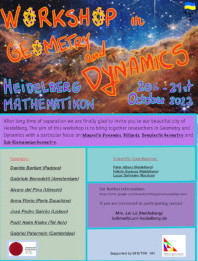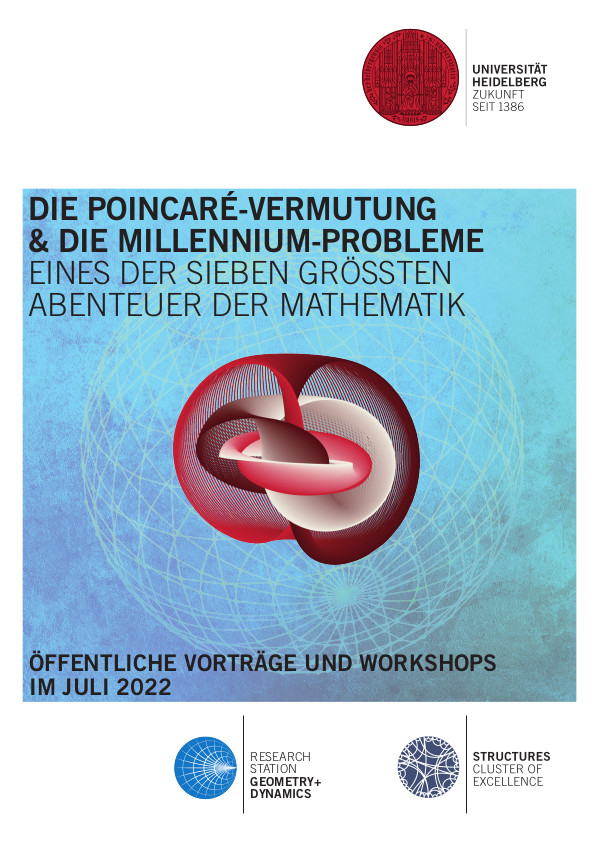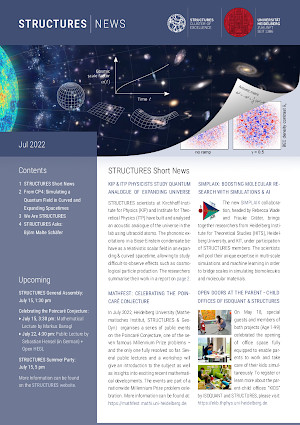Newsroom
Stay informed with our latest news and announcements on this page. For more in-depth content, we also encourage visitors to explore our bimonthly STRUCTURES Newsletter magazine, which features a variety of articles, interviews with members, and background information on our latest research and activities.
We are happy to announce that registration is open for the Workshop in Geometry and Dynamics, which is going to take place on October 20th and 21st at Mathematikon in Heidelberg. The aim of this workshop is to bring together researchers in geometry and dynamics with a particular focus on magnetic dynamics, billiards, symplectic geometry and sub-Riemannian geometry.
The registration link and more information can be found at:
https://www.sites.google.com/view/workshopgeometryanddynamics/home.
We are delighted to announce that the new STRUCTURES Blog is online, launched in parallel with our new social media presence on Twitter (@structures_hd) and Instagram (@structures_heidelberg). On the blog and on our Instagram and Twitter channel, we will provide explanations and insights on interesting structures that are related to our research in the STRUCTURES cluster, and visualize them with captivating images. We hope to give a broad, interested audience an idea of what these structures are, how they come about, and why they fascinate us. Starting off with an article by Manfred Salmhofer on "The Structure of STRUCTURES", we look forward to your feedback regarding the blog.
Related links:
- STRUCTURES Blog: https://structures.uni-heidelberg.de/blog/
- Instagram: @structures_heidelberg
- Twitter: @structures_hd
A new podcast episode of “#exzellenterklaert - Spitzenforschung für alle” is online. In this episode, Bettina Weigelin and Judith Feucht explore the question how we can help our immune system in the fight against cancer with CAR-T cell therapies. The two researchers are working together in the iFIT - Cluster of Excellence to develop new methods to improve cancer immunotherapy. At the heart of the therapy are T-cells, which play a central role in our immune system. These are being modified in Judith Feucht's lab so that they can better fight the cancer cells. Using state-of-the-art microscopes, Bettina Weigelin then studies how well the modified T-cells fight cancer.
The German science podcast “Exzellent Erklärt - Spitzenforschung für alle” on current science topics reflects the research diversity of the Germany’s leading research institutions and Clusters of Excellence: from Antiquities to Quantum Physics. In each episode, listeners can expect insights into the interdisciplinary work of one research network.
Link: https://exzellent-erklaert.podigee.io/.Ruperto Carola magazine July 2022: STRUCTURES Members Wolfram Pernice and Rüdiger Klingeler provide insights into their research
In the current issue (July 2022, German) of Heidelberg University's research magazine "Ruperto Carola", STRUCTURES professor Wolfram Pernice provides insights into his research on novel computing platforms that work with light instead of electrons. These so-called "photonic" computing platforms allow to perform operations relevant to neural networks and artificial intelligence (AI) in very short times and with remarkable energy efficiency. This will be of huge relevance for overcoming current barriers to the bandwidth of conventional AI computing systems based on electronic computers. The architecture underlying the programmable nanostructures developed by Prof. Pernice and his group are inspired by the functioning of neurons and the human brain, which do not strictly distinguish between data storage and data processing. Such "neuromorphic" computational methods promise new applications in autonomous driving, training artificial neural networks or ultra-fast processing of telecommunication signals.
In the same issue, Prof. Rüdiger Klingeler of STRUCTURES talks with educational scientist Nina Jude about hard facts in soft research fields, about defects that increase the stability of a material, and about the question of which soft skills and hard skills are really necessary in studies; and what school education should do in this regard.
An international research team under participation of STRUCTURES member Fabian Schneider discovered a “dormant” black hole in a binary-star system outside our galaxy. These black holes are very difficult to find because they do not emit X-ray radiation.
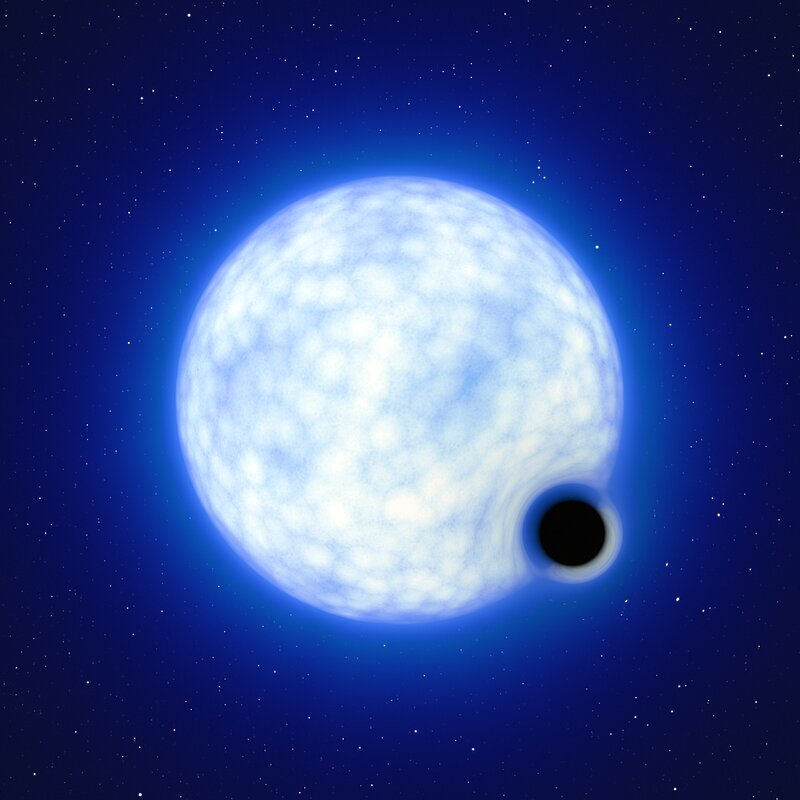
In their study, published in Nature Astronomy, the researchers reported the first discovery of a ‘dormant’ stellar-mass black hole, VFTS243, outside the Milky Way galaxy, based on observations with ESO's Very Large Telescope (VLT). Stellar-mass black holes form when massive stars collapse under their own gravity at the end of their lives. If this happens in a binary system, the resulting black hole will be orbiting a luminous companion star. Such black holes often accrete material from their companion and emit powerful X-rays, but a “dormant” black hole does not. Astronomers suspect that many more dormant black holes exist than previously thought. The team also found that the star that gave rise to VFTS243 disappeared without evidence of a strong supernova explosion, indicating a ‘direct-collapse’ scenario. The new results have significant implications for the origin of black-hole mergers in the cosmos.
Original Publication (July 18, 2022):
Shenar et al: An X-ray quiet black hole born with a negligible kick in a massive binary within the LMC. Nature Astronomy.
On July 22, Prof. Dr. Sebastian Hensel (LMU Munich) will give a public talk (in German) on “Von Sphären, Schleifen und Flüssen: die Poincaré-Vermutung und die Form des Raums” as part of our event series on the Poincaré conjecture in the context of the nationwide Millennium Prize Problems Mathfest. This talk is aimed at everyone who is curious about topology and at high school students (Oberstufe). After the talk, there will be the opportunity to talk to the lecturer and other scientific experts and to participate in a hands-on exploration of geometry and topology at the Heidelberg Experimental Geometry Lab (HEGL).
For details, please see the event page of the Research Station Geometry & Dynamics and the press release (German).
We are happy to present the seventh volume of the STRUCTURES Newsletter, which features the following topics:
- 1. STRUCTURES Short News July 2022
- 2. From CP4: Simulating a Quantum Field in Curved and Expanding Spacetimes
- 3. We Are STRUCTURES
- 4. STRUCTURES Asks: Björn Malte Schäfer
The STRUCTURES Project Management Office is happy to answer questions and to receive feedback.
